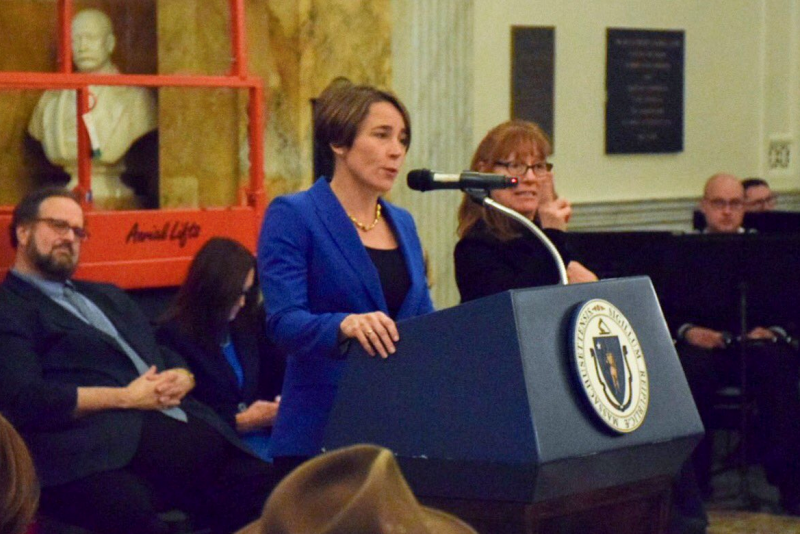Community
AG Healey co-leads effort urging Supreme Court to allow student punishments for off-campus speech

BOSTON – Massachusetts Attorney General Maura Healey and District of Columbia Attorney General Karl Racine today co-led 24 attorneys general in filing a brief urging the U.S. Supreme Court to preserve schools’ ability to address cyberbullying and other forms of off-campus bullying.
The brief was filed today in Mahanoy Area School District v. B.L., a case concerning the ability of schools to hold students accountable for off-campus speech. The brief does not support either party in the case, but urges the Court to reject a Third Circuit ruling preventing schools from taking action to address students’ off-campus speech or expressive conduct even where it has substantial in-school impacts, arguing that such a rule undermines state anti-bullying laws. In Massachusetts, the law, like laws in dozens of other states, requires schools to address disruptive in-person and online bullying even where it originates off-campus, so long as the bullying has substantial in-school impacts. The coalition encourages the Court to uphold an existing legal standard, which empowers schools to regulate speech that substantially disrupts school or interferes with other students’ rights at school.
“Bullying can have serious, long-lasting emotional and mental health consequences for our children,” AG Healey said. “Teachers and school administrators need to have every possible tool at their disposal to ensure students feel safe and able to learn. We are urging the Court to continue to allow schools to protect students from bullying that plagues them at school – no matter where it originates.”
In Tinker v. Des Moines Independent Community School District, a landmark 1969 decision, the Supreme Court affirmed that students have First Amendment rights in public school settings, but also recognized that school officials may regulate student speech that would “materially and substantially disrupt the work and discipline of the school” or interfere with the rights of other students. Every federal appellate court in the country to address this issue, except the Third Circuit in the case now before the Supreme Court, has applied the Tinker standard to student speech that causes substantial disruption or harm at school, regardless of where the speech originates.
According to a statement through Healey’s Office, nearly 60 percent of teenagers report having been bullied online at some point in their lives. According to the brief, the U.S. Department of Education’s most recent school safety survey found principals at roughly one in five public middle and high schools reported that the school environment was negatively affected by cyberbullying at least once a week.
The brief argues that the Court should treat students’ off-campus speech like any other speech, and thus allow them to regulate it in the instances where it has a substantial impact on a student’s learning. The attorneys general argue that bullying can create an environment where children are forced to skip school to avoid further abuse while in the classroom or when traveling to and from school on the bus.
The attorneys general further argue that if the court limits the ability of schools to regulate off-campus speech, schools will lose a critical tool in protecting the well-being of their students and their ability to learn in the classroom.
Joining AG Healey and AG Racine in filing today’s brief are the attorneys general of California, Colorado, Delaware, Hawaii, Illinois, Iowa, Maine, Maryland, Michigan, Minnesota, Nevada, New Hampshire, New Jersey, New Mexico, New York, North Carolina, Oregon, Pennsylvania, Rhode Island, Vermont, Washington, and Wisconsin.
In November, AG Healey issued guidance to school officials across Massachusetts about their legal obligations under the state’s anti-bullying and anti-discrimination laws to prevent and address hate and bias incidents at their educational institutions. The guidance – issued to ensure that students feel safe and protected in school –describes how schools must respond to hate and bias incidents involving students and what proactive steps schools must take to prevent such incidents.
This brief was handled in Massachusetts by Assistant Attorneys General Josh Olszewski-Jubelirer in AG Healey’s Civil Rights Division, Doug Martland in AG Healey’s Administrative Law Division, Abby Eshghi in AG Healey’s Children’s Justice Unit, and Senior Counsel Bill Porter in the State Solicitor’s Office.





You must be logged in to post a comment Login